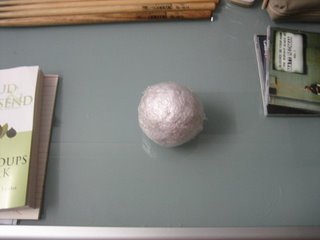It's the fourth week of semester and I've already learnt so much!
I think it's been somewhat of a forgotten segment of my life, Uni has, since it really only occupies just over four hours a week of my time. But every Wednesday afternoon I'm definitely pushed in terms of thinking of film and expression in general in a totally new way.
The first week we watched the classic (but they're all classics!)
Citizen Kane (1941) directed by and starring a true auteur in Orson Welles. Based loosely on the life of
William Randolph Hearst, Citizen Kane is one of the most influential movies of all time, with Welles and his cinematographer Gregg Toland using revolutionary cinematography which included a new way of using deep focus to make everything in the mise-en-scene perfectly focused (foreground, background and everything else in between). If you're looking at a film from the era of the Hollywood studio system, this is the perfect example.
After finally managing to read my set articles in week two, I learnt a great deal about studying cinema, especially that to properly learn about Hollywood cinema, it's imperative that it's viewed as an industry, one that like all others, seeks to make profits and generate more revenue. Hollywood began in the 1920s and by 1930, the motion picture industry in the US was largely an oligopoly (controlled by a few firms). These "Big Five" as they were called were:
Paramount,
Loews (parent company of MGM),
Fox Film (later Twentieth Century Fox),
Warner Bros and
RKO. There were also the "Little Three" (
Universal Pictures,
Columbia Pictures and
United Artists) with the primary difference being that The Big Five owned their own cinemas across the States whereas The Little Three had to pay fees to have their movies screened in any of the Big Fives' cinemas. As you can see, most of these are still major players in the industry and one of the articles outlined the amazing ability of these companies to stay in power for so long, given the serious setbacks like the great Depression in 1929 and the advent of television and cable. The major reason given was their propensity to catch on to new technologies like the Technicolor camera (invented by Thomas Edison) and sound quality (DTS, Dolby, THX).
In the third week we covered
His Girl Friday (1940) starring Cary Grant and Rosalind Russell. I would say the movie was quite witty, essential for a screwball comedy. For so much of the movie I, and many others in my tute as I later found out, found it difficult to follow the lines of both main characters Grant and Russell because they were delivered at astonishing speed! I've never heard people speak that fast, and I thought it was amazing how well it was done - there are a few occasions when the lines are spoken so fast and you think the dialogue is going to end, but it keeps on going at the same pace! It's an interesting love-type comedy that I recommend, a lot more light hearted (obviously) than the dark
Citizen Kane.
Yesterday's leture, after the screening of
Scarface (1932 NOT 1983) revolved around censorship. As such, we were shown
The Celluloid Closet which is a collection of interviews and snippets of movies with subtle gay connotations. It was hilarious! I will never see movies like
Ben-Hur (1959) and
Gentlemen Prefer Blondes (1953) in the same way again. One of the movies questioned was Howard Hawks'
Red River (1948) which is your typical cowboy-western and there was a scene with the two leads admiring each others' guns. SO FUNNY! Hmm gay cowboys - who would ever think?
At the end of our lecture, we were shown the beginning a movie called
Irreversible (2002) with Monica Bellucci. Dave had told me about this movie before and what it entailed but we didn't get to watch the infamous rape scene. The lecturer strongly advised whoever was squeamish to leave the lecture early due to the gratuitous nature of the movie and I almost think myself fortunate that we didn't get far enough into the movie to see anything really shocking. I'm still in two minds about seeing the movie, even if it is done for research purposes.
On a brighter note, even though I was one of the last to pick my presentation week, I managed to get (in my opinion) the best week of all - Week 12! Not only is it the last week of Uni, but considering my somewhat limited taste in art-house cinema (compared to the
really artsy-types doing the subject), Week 12's topic is "American New Wave" and the movie is
Taxi Driver (1979) directed by Martin Scorsese which I've actually heard of! I'd say that this a much lighter option than other weeks which include neo-realism, key European movements, European new-wave and avant-garde.
Anyway, that's enough drivel for now. Will keep you guys updated, especially after this massive weekend. Have a good one!




















